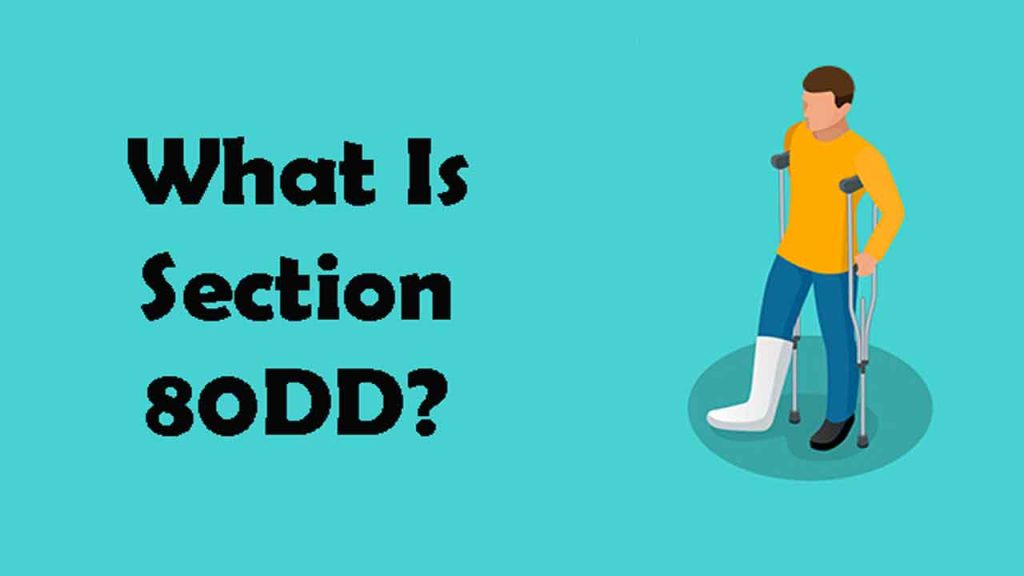Individuals and HUFs may seek a tax benefit under Section 80DD of the Income Tax Act for medical care of a person with a disability or differently-abled. The sum deducted would also cover premiums charged by specific insurance policies tailored for a disabled person.
Deduction under section 80DD
The following are the provisions that must be met in order to qualify for this deduction:

- A deduction is permitted for a taxpayer’s dependent, but maybe not for the taxpayer themselves.
- If the defendant has sought a deduction under section 80U for oneself, the taxpayer is not entitled to such a deduction.
- In the event of an individual taxpayer, dependent children include the taxpayer’s partner, children, parents, brothers and sisters. In the situation of a HUF, it refers to a representative of the HUF.
- The taxpayer has borne bills for the disabled people dependant’s medical care (along with nursing), training, and recovery, or the taxpayer might just have contributed in a LIC or some insurer’s plan for the dependant’s upkeep.
- The dependant’s impairment is greater than 40%.
- Section 2(i) of the Persons with Disabilities Act of 1995 defines disability.
Must read – What is Section 80E?
If the aforementioned terms are fulfilled, the sum of deduction permitted is
- ₹75,000 where impairment is greater than 40% but less than 80%.
- ₹1,25,000 where impairment reaches 80%.
- These deductions are permitted regardless of how much you already spend.
Always bear in mind that prior to the FY 2015-16, The deductible cap ₹50,000 for a disability of a minimum of 40% and ₹100,000 for impairment of more than 80%.
Disabilities Covered Under Section 80DD
The aforementioned disabilities are protected u/s 80DD of an Income Tax Act, 1961.
- Hearing impairment
- Mental retardation
- Mental illness
- Autism
- Cerebral palsy
- Blindness
- Low vision
- Leprosy-cured
- Locomotor disability



